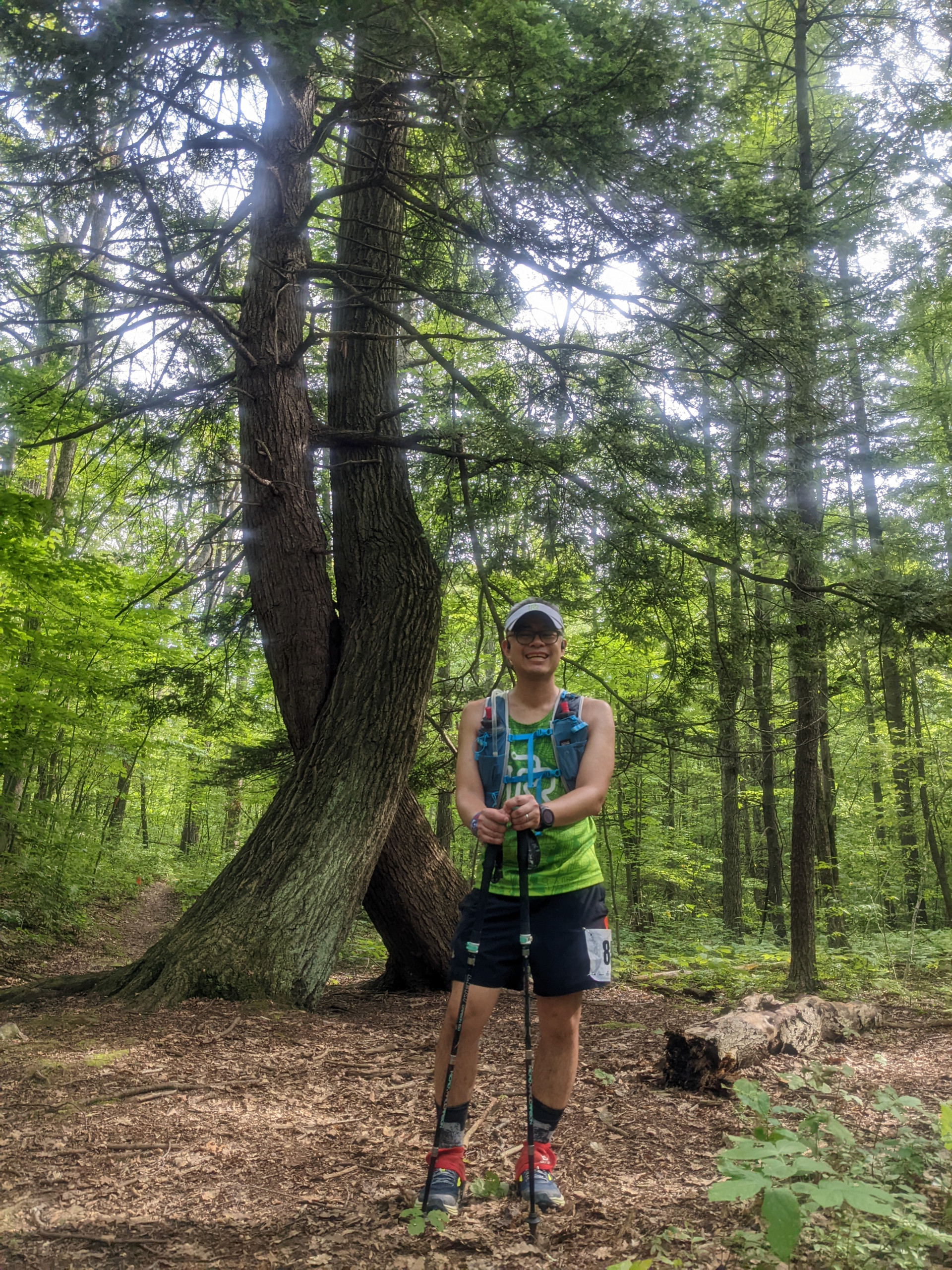The Twisting Branch Part 3
“Ultrarunning is 10% physical and 90% mental.” How often have you heard that maxim? I recently heard a different interpretation: Rob Bell put it that sport is still 90% physical, but the 10% mental component is the key that unlocks the other 90%.
Dr. Bell is Certified Mental Performance Consultant, a qualification registered with the Association of Applied Sport Psychology (AASP). Even for an engineer like me who deals with acronyms all the time, the number of credentials that fall in the health and sports performance spaces (and especially in the intersection of the two) can be mind-boggling. I feel like sports psychology is something that only really became mainstream in my lifetime, and yet we’ve always known that our minds, for better or for worse, can be the x-factor in performance.

I first became aware of mental performance coaching from Ellie Pell, who was studying for her Bachelor’s degree in Kinesiology at the time. It happened to be right when I was focused on building my team for Twisted Branch. I was excited about the concept, that there was a professional who could train my brain just like my other coaches would train my body. But, like the physical side, there needs to be a commitment from the athlete to incorporate the training on a regular basis. It fell by the wayside for me, partly because the physics of strengthening my aerobic, cardiovascular, and musculoskeletal systems made more intuitive sense to me. I could grasp the concept of fast-twitch and slow-twitch muscles, of stress and adaptive response in the context of tearing down tissue to build it up stronger again.
How does that work for the brain? All I know is that somehow a combination of chemicals and electrical impulses work together to tell various body parts to move, feel pain and emotions, and store away memories for years and bring them back again when we need them. Unlike other components of the body, we can’t resort to direct physical manipulation of the brain to improve performance. Obviously, we can and do ingest drugs to alter our mental states, but this is heavily controlled in sport. Another approach is to use dialogue to trigger responses in the brain that lead to positive adaptations and increased ability to handle external stressors.
According to the American Psychological Association, sports psychology has been around since the late 19th Century. By the 1960s, the body of research had expanded, leading to the creation of professional groups specializing in this field. Moving beyond academia, the AASP was founded in 1985, and the field has since expanded to incorporate practitioners who work outside of a clinical setting. This is the main difference between a mental performance coach or consultant (MPC) and a clinical sports psychologist, which requires a doctorate. While this may seem to indicate that MPCs are in some way inferior due to the difference in training (some MPCs are PhDs as well), in reality, MPCs work alongside other medical professionals who specialize in different areas of mental care. In practical terms, a MPC can adequately provide the coaching an athlete may need without being a practicing clinician.
Of course, even without a CMPC qualification, good running coaches may take on aspects of mental training for their athletes, as the goal is the same: unlock the potential of their physical fitness to achieve results. But just like you may turn to a PT or a dietitian to work on your muscle strength or your nutrition, hiring an MPC is no different.
For me, I’m writing this with the benefit of hindsight. My story is that I did not add a MPC to my team for Twisted Branch. Instead, I listened to podcasts and read articles by respected coaches and tried to glean what I could. By and large, my training went well, and I felt well supported by my team. So long as I was learning from my workouts and test races, I felt I would be okay.
On July 4th weekend, I took part in the Whiteface Mountain Race, primarily to get experience on steep inclines and descents. While it was a lot of fun, I felt I picked up a quad injury that I ultimately never shook off. After that, I went into my heaviest volume training block with three back-to-back weekends, finishing with the Mini Mosquito 50k before my 2-week taper. I was freaking out before this race, unsure whether I should risk further injury, until I got checked out by my PT/strength coach, Carly. She assured me I didn’t have any permanent damage (and actually my issues were related to my underlying mechanics that we had been working on for a year), but I think my confidence was already starting to deteriorate. Plugging through the oppressive heat (90ºF) and humidity at Mosquito really scared me into thinking I might not be able to cope at Twisted Branch.
Could I have used a MPC then? Maybe. I was trying to read through Addie Bracy’s Mental Training for Ultrarunning, with the intention of reaching out to her when I was done. I had come across Addie while listening to her on a podcast, and connected with what she had to say about mental performance. Addie is the co-owner of Strive Mental Performance, as well as a coach for Sharman Ultra Coaching. She is no stranger to overcoming mental adversity herself, pushing herself hard to qualify for Olympic trials and win USATF National Championships, as well as some epic performances at a few of the country’s top ultras.
For some weird reason, I thought it would be rude to ask to speak with Addie without trying to digest what she had already put out there. As it was, I just ran out of time, and race day caught up to me before I finished the book. The advice I found the hardest to implement was trying to find my why, which Addie covers in one of the earliest chapters. I never settled on one before the race, and even afterwards, I found it hard to pin down. It might not be important, but I was worried about what it said about my ability to commit and, by extension, to perform.
Now, with Twisted Branch in the rearview mirror, I feel like there is a deeper tie between how I am processing this outcome and what I truly care about in life. I think a MPC might help me unpack what is holding me back, so I can move on from the past and maintain a healthy relationship with running in the future.
Add Comment
You must be logged in to post a comment.







